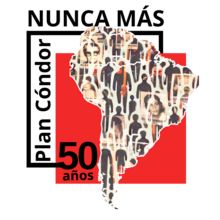50 Years After Operation Condor: Documents for Memory and Justice
This collection brings together historical documents and key texts that help to understand the repressive context that existed in South America during the 1970s and 1980s, as well as the prolonged and tireless pursuit of justice championed by the victims, their families, and civil society organisations. It also puts the spotlight on the struggles against authoritarianism, the resistance to dictatorships, and the sustained commitment to building Memory, Truth, and Justice.
The documents presented here were collected, digitised, and systematised thanks to a joint effort between researchers, social organisations, and institutions. In the current context of denialism and the resurgence of authoritarian discourses, it is essential to provide the public with free and open access to this documentation to strengthen critical thinking, democratise knowledge, and contribute to the symbolic reparation to the victims and society as a whole.
Starting in the early 1970s, the political repression which unfolded within each country took on a particularly sinister regional dimension with the creation of the so-called Operation Condor. In November 1975, military intelligence officers from the regimes of Argentina, Bolivia, Chile, Paraguay, and Uruguay met in Santiago, Chile, and established the “Condor System.” According to the Minutes of the Conclusions of the First Inter-American Meeting on National Intelligence, the name “Condor” was unanimously approved following a motion presented by the Uruguayan delegation, in recognition of the host country.
This transnational network of repressive cooperation allowed the dictatorships to coordinate clandestine operations to locate, monitor, kidnap, torture, and assassinate exiled individuals who continued to denounce the regimes in power from abroad. The relatives of disappeared individuals and refugees were also targeted, even if they were not politically active, and were identified as threats by the repressive apparatuses.








